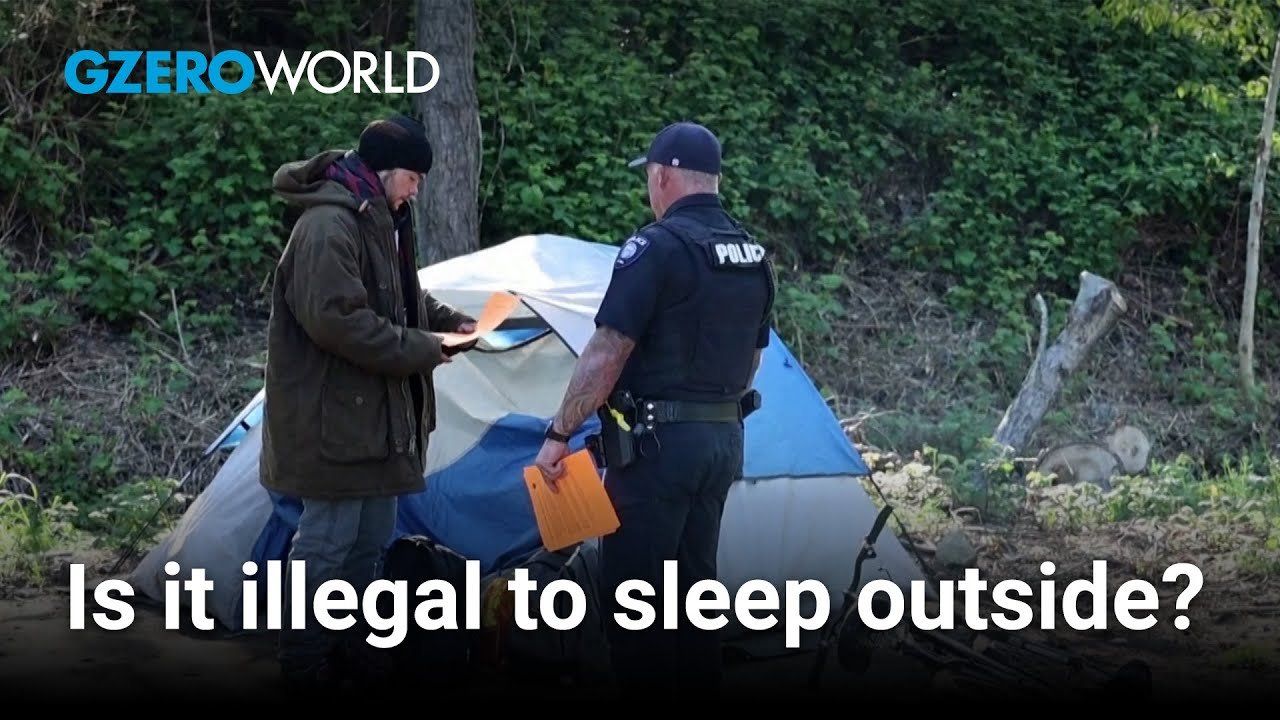GZERO World Clips
The Supreme Court tackles homeless right to sleep outside

The Supreme Court tackles homeless right to sleep outside | GZERO World

Is sleeping like breathing? Do Americans have a Constitutional right to sleep? In April, Supreme Court justices heard a case involving homeless encampments and whether cities that don’t provide shelter space can arrest or fine people for sleeping outside. At oral arguments, they asked philosophical questions about the idea of sleeping and whether or not providing space to sleep qualifies as “cruel and unusual” punishment under the 8th Amendment of the Constitution.
Legal expert Emily Bazelon joins Ian Bremmer on GZERO World to unpack some of the biggest cases before the Supreme Court this year. Former President Trump’s legal woes are front and center in the news, but many other major issues are at stake during this court term, including homelessness, gun rights, free speech on social media, and the power of federal agencies to interpret laws.
One case in front of the Court this year that isn’t generating a lot of headlines but will have a big impact on the daily lives of Americans involves the landmark 1984 Chevron v. Natural Resources Defence Council decision that provides the legal bases for government agencies like the EPA, SEC, and FDA to interpret laws how they see fit if they are ambiguous. At oral arguments, the Court’s conservative majority seemed skeptical of allowing the Chevron ruling as it stands to remain in place, which will fundamentally change the way the federal government operates.
“One way to think about these agencies is that they keep us safe. They make sure the water is clean and that the air is clean,” Bazelon explains. “Another way to think about them is they're intruding on corporate profits and taking up too much power.”
People in support of former South Korean President Yoon Suk Yeol rally near Seoul Central District Court in Seoul on Feb. 19, 2026. The court sentenced him to life imprisonment the same day for leading an insurrection with his short-lived declaration of martial law in December 2024.
65: The age of former South Korean President Yoon Suk Yeol, who was sentenced to life in prison on Thursday after being found guilty of plotting an insurrection when he declared martial law in 2024.
In an era when geopolitics can feel overwhelming and remote, sometimes the best messengers are made of felt and foam.
The Hungarian election is off to the races, and nationalist Prime Minister Viktor Orbán is facing his most serious challenger in 16 years.
Does skepticism rule the day in politics? Public opinion data collected as part of the Munich Security Conference’s annual report found that large shares of respondents in G7 and several BRICS countries believed their governments’ policies would leave future generations worse off.